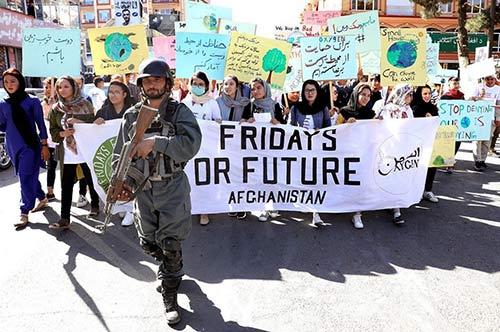You have an important social event on the following day and, lo and behold, a mammoth zit pops up on your face. You fret, you frown, and then pray that it subsides before the event. You apply all sorts of creams and ointments, but in your heart, you know that the zit is here to stay. Panicked, you rush to the phone to make a quick appointment with your dermatologist. At the clinic, your dermatologist offers you a solution packed in a shiny syringe: a cortisone injection.
Cortisone injections were introduced in dermatologic therapy in 1961. They have been used extensively since then to treat a variety of skin conditions (1).
One of the most common conditions treated with cortisone shots are acne cysts caused by acne vulgaris.
Acne is a pretty common condition that affects up to 80 % of adolescents (2). It can have a negative impact on the mental health of the individual as it leaves behind unsightly scars and pigmentation, leading to immense psychological distress (3), (4).
It has also been found that anxiety and depression are more common in patients with acne (5), (6), (7).
To prevent unpleasant scarring and pigmentation, cortisone shots instituted in the initial phases can be given to the patient.
What Is A Cortisone Shot?
Steroids are a class of medication that regulate diverse cellular functions, like inflammation (8). Due to their anti-inflammatory action, steroids are one of the most widely prescribed drugs in the world (9).
In dermatology, the most commonly used cortisone preparation is triamcinolone acetonide. These injections are a standard mode of treatment for many skin diseases like keloids, acne, and alopecia areata (10).
Cortisone injections deliver steroids directly into skin lesions.
The cortisone is deposited in the skin to be delivered over a period, resulting in prolonged therapy while minimizing the adverse effects of systemic therapy. This treatment is extremely effective, easy to perform, and relatively safe.
When And Where To Get A Cortisone Shot?
![When And Where To Get A Cortisone Shot]()
Shutterstock
Cortisone shots are given to provide rapid relief from nodulocystic acne – an advanced stage of acne characterized by multiple cysts, nodules, and scars (11).
You can also get them if you want to treat a single painful acne cyst quickly. Always get your steroid shot from a certified dermatologist as only they are skilled enough to inject the medication in the proper manner and dosage.
No special preparation is required for this procedure. It is done at the clinic and can take 5 to 15 minutes. You need to inform your doctor if you have any allergies or are on any blood-thinning medication, such as aspirin or warfarin, as they can increase the chances of bruising at the site of injection. A dressing might be placed over the area, which can be removed after a few hours.
A Word Of Caution
Never get a cortisone shot at the same spot within three weeks as it may cause some side effects. Triamcinolone acetonide is a long-acting steroid that remains at the site of injection long enough to produce a substantial anti-inflammatory effect. Therefore, you don’t need to inject it into the same area repeatedly within a short span of time..
What Is The Mechanism Of Action Of Cortisone Shots?
An acne cyst is a nidus of pus and inflammatory cells accompanied by extensive inflammation. Cortisone injections are given to curb this inflammation. They decrease the inflammatory cells at the site of the lesion. When the inflammation goes down, so does the pain and the size of the cyst (12).
Are Cortisone Shots For Everyone?
Cortisone shots can be taken by anyone who wants to get rid of a cyst quickly. However, avoid getting multiple injections in a single sitting in case of extensive lesions.
These shots can be taken by everyone, including pregnant and lactating women. They can be taken by people of any age, though the pain and fear of needles may be a deterrent for children.
These injections should be avoided by anyone who is allergic to triamcinolone acetonide. Avoid injecting sites where there is a fungal or viral infection on or around the lesion.
What Are The Benefits Of Treating Acne With Cortisone Shots?
Cortisone shots offer more benefits than other medications.
Firstly, when topical medications fail, these injections penetrate deep into your skin and treat deep-seated conditions.
Secondly, oral medication may have some general side effects on your body. Injecting the medicine at the site of the lesion keeps it confined in that area.
Thirdly, they treat acne more quickly, saving your skin from scars and pigmentation.
But, the big question remains…
Are There Any Side Effects Of Cortisone Shots?
![Are There Any Side Effects Of Cortisone Shots]()
Shutterstock
When these steroids are not injected in a proper manner or in the correct dosage, it can lead to certain side effects:
• It may cause thinning of skin (known as atrophy), leading to a slight indentation at the site of injection.
• It may cause hypopigmentation, i.e., lightening of skin at the site of injection.
• It may cause telangiectasia, i.e., the blood vessels around the site of injection may become more visible than normal (13).
• In very rare cases, it may cause an allergic reaction if the patient is allergic to any of the components of the injection.
Keep in mind that any atrophic scars or hypopigmentation caused by cortisone injections are fairly permanent and very difficult to get rid of.
Therefore, it is imperative that you get these shots from a dermatologist who knows how to dilute the steroids in the proper concentration and inject them at the proper site of the lesion.
Cortisone Shots – After-Care
Once you get your shot, you don’t need to do much except just wait for the zit to subside. Your doctor may prescribe an antibiotic cream that you need to apply for a few days.
Avoid touching the lesion and don’t apply any other cream apart from what your doctor has prescribed.
How Much Do Cortisone Shots Cost?
A cortisone shot can range from anywhere between $25 to $100 per sitting. This includes the cost of the medication and syringe. However, your doctor may quote a different price based on their expertise and experience.
Cortisone Shots At Home
We would strictly advise you not to attempt to give yourself a cortisone shot at home. Always get procedures done by a dermatologist who has the proper knowledge and skill to perform such procedures.
Also, only a dermatologist can assess your lesions and make an informed decision on the course of action that needs to be followed.
As mentioned above, if the injections are not injected in the correct dosage or the precise place, they can lead to atrophy of the skin and/or hypopigmentation. Therefore, always make it a point to consult a dermatologist.
When used cautiously, cortisone injections are a simple and fairly safe procedure that is an integral part of dermatology. The procedure does not require a lot of time and can be done in minutes. It does not cost much and can help you get rid of huge, painful pimples in a matter of a few hours to a few days while preventing unsightly scars and pigmentation.
Whether you get pimples occasionally and want a quick fix or are experiencing a more advanced stage of acne, like nodulocystic acne, cortisone shots could be the key to gaining freedom from those zits.
Thanks to modern dermatological treatments like cortisone shots, you don’t need to walk around with a giant pimple of your face if you don’t want to. Do you have any more questions about cortisone shots? Leave them in the comments section below, and we’ll get back to you.
FAQs
Frequently Asked Questions
Are cortisone shots painful?
Cortisone shots can be fairly painful but are generally tolerable. They usually don’t require anesthesia. Sometimes, if the cyst is infected and full of pus, the doctor may pierce it first to let the pus out and then give the injection. The drainage of pus can be really painful for some people.
What is the healing time for acne after getting a cortisone shot?
You may notice a dramatic flattening of the cyst after getting a cortisone shot. This usually occurs within 48-72 hours (14).
Is it safe to get a cortisone shot for acne while pregnant?
Yes, it is safe to get cortisone shots on acne cysts while pregnant as the medication remains confined in that particular area and does not spread to other areas of the body. In fact, these drugs are one of the safest to take during pregnancy or lactation (15).
For which other skin conditions are cortisone shots used?
Cortisone injections are used to treat a variety of skin conditions like keloids, hypertrophic scars, and localized hair loss (alopecia areata).
15 sources
Stylecraze has strict sourcing guidelines and relies on peer-reviewed studies, academic research institutions, and medical associations. We avoid using tertiary references. You can learn more about how we ensure our content is accurate and current by reading our
editorial policy.
- Intralesional drug therapy in dermatology, Indian Journal of Dermatology, Venereology and Leprology.
http://www.ijdvl.com/article.asp?issn=0378-6323;year=2017;volume=83;issue=1;spage=127;epage=132;aulast=Deshmukh
- Epidemiology of acne vulgaris, Journal der Deutschen Dermatologischen Gesellschaft, US National Library of Medicine, National Institutes of Health.
https://www.ncbi.nlm.nih.gov/pubmed/16503926
- Dermatology life quality index in Thai patients with acne, Siriraj Medical Journal, Mahidol University.
http://www.smj.si.mahidol.ac.th/sirirajmedj/index.php/smj/article/view/606
- Consequences of psychological distress in adolescents with acne, The Journal of Investigative Dermatology, US National Library of Medicine, National Institutes of Health.
https://www.ncbi.nlm.nih.gov/pubmed/21228811
- Disease-specific quality of life is associated with anxiety and depression in patients with acne, Journal of the European Academy of Dermatology and Venereology, US National Library of Medicine, National Institutes of Health.
https://www.ncbi.nlm.nih.gov/pubmed/15196157
- Comparison of anxiety and depression in patients with acne vulgaris and healthy individuals, Indian Journal of Dermatology, US National Library of Medicine, National Institutes of Health.
https://www.ncbi.nlm.nih.gov/pmc/articles/PMC3051295/
- Prevalence of mental health problems in acne patients, Journal of Ayub Medical College, Abbottabad, US National Library of Medicine, National Institutes of Health.
https://www.ncbi.nlm.nih.gov/pubmed/11873431
- Antiinflammatory action of glucocorticoids –new mechanisms for old drugs, The New England Journal of Medicine.
https://pdfs.semanticscholar.org/d138/afb089729bf3c4461d201b43612e07587c4b.pdf
- Mechanisms involved in the side effects of glucocorticoids, Pharmacology & Therapeutics, US National Library of Medicine, National Institutes of Health.
https://www.ncbi.nlm.nih.gov/pubmed/12441176
- Standard guidelines of care: Keloids and hypertrophic scars, Indian Journal of Dermatology, Venereology and Leprology, US National Library of Medicine, National Institutes of Health.
https://www.ncbi.nlm.nih.gov/pubmed/21220896?dopt=Abstract
- Nodulocystic acne, DermNet NZ, DermNet New Zealand Trust.
https://www.dermnetnz.org/topics/nodulocystic-acne/
- The role of inflammation in the pathology of acne, The Journal of Clinical and Aesthetic Dermatology, US National Library of Medicine, National Institutes of Health.
https://www.ncbi.nlm.nih.gov/pmc/articles/PMC3780801/
- Intralesional Steroid Therapy, British Association of Dermatologists.
http://www.bad.org.uk/shared/get-file.ashx?id=212&itemtype=document
- Therapeutic efficacy of intralesional triamcinolone acetonide versus intralesional triamcinolone acetonide plus lincomycin in the treatment of nodulocystic acne, Indian Journal of Dermatology, Venereology and Leprology.
http://www.ijdvl.com/article.asp?issn=0378-6323;year=2003;volume=69;issue=3;spage=217;epage=219;aulast=Mahajan
- Corticosteroids during pregnancy, Scandinavian journal of rheumatology. Supplement., US
National Library of Medicine, National Institutes of Health.
https://www.ncbi.nlm.nih.gov/pubmed/9759153
The post Cortisone Shots For Acne: What You Need To Know About Them appeared first on STYLECRAZE.



























































































































